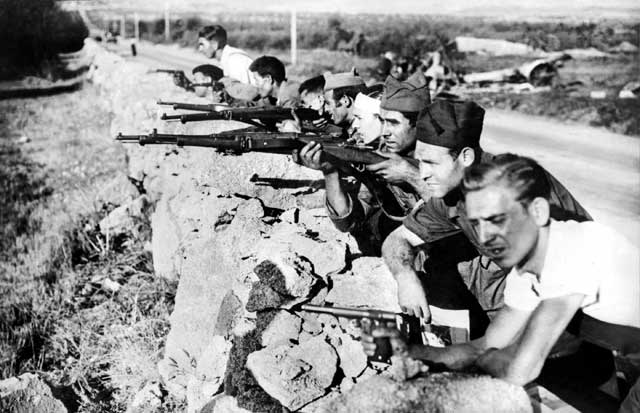The Wrong Blood, By Manual de Lope, trans. John Cullen

Your support helps us to tell the story
In my reporting on women's reproductive rights, I've witnessed the critical role that independent journalism plays in protecting freedoms and informing the public.
Your support allows us to keep these vital issues in the spotlight. Without your help, we wouldn't be able to fight for truth and justice.
Every contribution ensures that we can continue to report on the stories that impact lives

Kelly Rissman
US News Reporter
The one drawback to this novel of the Spanish Civil War is its cover. While the picture is beautiful, if irrelevant, the title doesn't do justice to the original. Sangre Ajena has more the sense of alien (foreign) or bad (strange) blood: "wrong" sounds too much like a transfusion of an unmatched group. And the flyleaf leads the reader to anticipate a plot line that simply doesn't materialise.
In effect, the plot is secondary to the writing: high praise indeed, particularly with a work of literary translation. This novel has an oneiric tenor, focused on the interwoven lives of two women and their two daughters, as seen through the eyes of their neighbour, Dr Castro. A reliable witness, if an increasingly old, lonely and lame one, he alone can unwind the intricate threads that bind the valiant young widow Isabel Herraíz to the local peasant girl who becomes her servant, María Antonia Extarri, in the remote house in the Basque country where a trainee lawyer retreats to prepare for his exams.
Dr Castro's attempts to win proximity to "Young Goitia" are clumsy and doomed to diversion in the direction of the brandy bottle. Indeed, Goitia's identity – along with the nature of the pact between Isabel and María Antonia – are anticipated by the reader well ahead of the author's disclosure. This has the effect of placing the emphasis on what is more often secondary in a novel: background and atmosphere.
The desperate hazards of civil war leave Isabel bereft of her beloved husband within days of their honeymoon, and María Antonia bereft of her parents, and the rape victim of a sergeant-at-arms. They render their common fate as pregnant teenagers without a man's support more imperative than political allegiance in a time of war. Like crippled Dr Castro, relegated to the sidelines, the women's lives are ruled by what war has done to their bodies.
It has been said that men are interested in the waging of war and women in its aftermath. For "María Antonia... The calendar of sentiments knows no certainties, but she had kept everything in her memory. There could be no greater misfortune, no greater solitude, than memory." John Cullen's translation, with but the occasional lapse, successfully carries forward this sense of a past ruling the present, ineluctably determining a future. His rendition of a scene combining birth and death merits the highest possible marks for memorability. Amid the current outpouring of Civil War fiction in Spain, the books of Manuel de Lope and María Barbal, author of the similarly lucid and fluid Stone in a Landslide, should be top of interested readers' lists.
Subscribe to Independent Premium to bookmark this article
Want to bookmark your favourite articles and stories to read or reference later? Start your Independent Premium subscription today.
Join our commenting forum
Join thought-provoking conversations, follow other Independent readers and see their replies
Comments